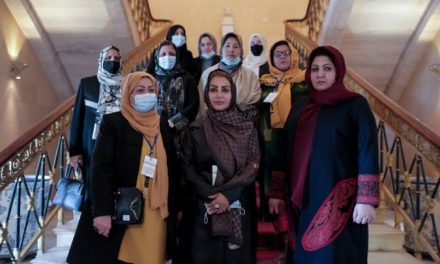Maria Karamessini, President and Governor of the Greek Public Employment Agency (OAED) and Professor in Labour Economics and Economics of the Welfare State at Panteion University has published an article titled “Wages, labour rights and development: the focus of an alternative plan for European integration” in weekly newspaper Epohi (25.03):
“Sixty years after the signing of the Treaty of Rome, twenty five years after the signing of the treaty of Maastricht, which launched EU’s neoliberal integration, and ten years after the beginning of the recent global economic crisis, the EU is stuck in low growth and high unemployment rates. The EU is also going through a wholesale crisis of legitimacy in the eyes of European peoples who view European institutions as attacking their vested rights and hindering their ability to determine their life through social and political participation.
Moreover, in the eurozone, the refusal to jointly handle the public issue of over-indebtedness in households, companies, banks and memberstates, as well as the widening inequalities between the North and South -a result of the austerity and internal devaluation policies imposed on the periphery- have undermined the credibility of the mainstream plan for resolving the crisis, as it is expressed by the European institutions and the IMF.
The “social question” in neoliberal Europe
Besides widening the inequalities among member states, the global financial crisis also exacerbated already existing reactionary trends and social problems in all EU countries, due to the increasing precariousness and poverty as well as the further erosion of labour and social rights in the form of active institutional deregulation over the last few years -in Greece and in several other countries. The rising of Euroscepticism on the Left and the Right -as evidenced by recent elections in Europe and the referendum on Brexit- has, despite its negative ideological and political consequences, contributed to raising mass awareness on the issue facing young people today in Europe. The disenfranchised youth is the new “social issue” of neoliberal Europe of the 21st century, and it goes hand in hand with the new “political issue”, that is the decline of the real power of democratic institutions and the inability of the people to influence decisions concerning their lives and future.
Labour at the center of the “social issue”
Undoubtedly, scarce and precarious labour lies at the center of EU’s current social issue, and it is ingrained in the gradual dominance of neoliberalism across the continent. It is no coincidence that the Greek government is negotiating hard today with the country’s creditors for the labour rights of we employees in Greece, and has exerted strong pressure for inclusion of said rights in the Rome Declaration of 25/03.
Along with establishing a “smaller government”, redistributing income in favor of the capital and against wage labour, were the main objectives of the neoliberal project, in order to increasing profit rates and private investment. During the 1980s, in all 15 EU member-states, the share of wages in national income fell sharply to serve the above objective. But only with the Maastricht Treaty and the White Paper on Growth, Competitiveness and Employment, labour costs were associated for the first time with competitive performance of member-states and therefore with the evolution of employment.
Since then the European institutions have been recommending to member states that wage raises are lower than labour productivity. “Wage moderation” was also linked to urging the member states to move away from the endogenous growth model – based on domestic demand and hence on wages and private consumption – to an extrovert growth model, is driven by exports of goods and services and requiring low labour costs so as not to hamper the competitiveness of domestically produced products.
There was nothing “natural” about this procedure; it was part of the neoliberal political project that sought to use the EMU and the single currency not only as a medium for accumulating and centralizing European capital in a fully integrated market, but also as a tool for disciplining workers and trade unions, pitting employees in international competition against eachoter and forcing less competitive economies to correct their external imbalances through cost reduction policies. This in the short term meant “wage correction” policies, reductions in social security contributions and/or promoting flexible forms of employment.

Analyzing neoliberal integration: an alternative development model
The adoption of the Maastricht Treaty and afterwards, of the Stability Pact gave rise to heterodox economists and leftist activists that criticized the doctrine of “outward oriented growth” and the EMU. In 1990s they developed an alternative model for social integration in the EU, which was based on the promotion of public investments at national and EU level, the increase in real wages according to each country’s labour productivity and the introduction of a minimum of social and labour rights to prevent social dumping.
Each country should aim not to increase its exports at the expense of other countries, but to maintain a balanced foreign trade within a growing single European market through the combination of increased workers consumption and investment. In the vast majority of countries accumulation of capital depended mainly on domestic demand, so that any income redistribution at the expense of workers and in the interests of capital would slow down the employment and economic growth in individual countries as well as in the EU overall.
Today, a group of post-Keynesian economists (Stockhammer, Lavoie, Onaran etc.), are using extensively documented research to make similar criticisms. In fact this group supports that redistribution of income to profits away from wages in era of neoliberalism has resulted in two different but equally unstable development models: one was based on export growth, while the other was based on increased consumption via a continuous expansion of debt, with the disastrous consequences we know for all countries that, like Greece, had adopted it.
The above group proposed wage-led growth as an alternative development strategy for the EU and European countries. This policy based not only on the use of budget and industrial policy tools, but also on a wage policy at a European level that would take into account an equitable sharing of gains from productivity rise in each country, as well as the need to overcome external imbalances among different European economies.
The group also supports an institutional strengthening of the bargaining power of salaried employees atthe national and European level, by adopting the recommendations of European unions on the European Pillar of Social Rights: establishment of minimum wage in each country equal to 60% of the average wage, strengthening sectoral negotiations and the role of unions, etc.
Wages, labour rights and an alternative plan for European integration
The realization that the expansion of neoliberal policies and the generalization of outward-oriented development model in the EU and the eurozone have resulted in economic stagnation, unemployment and a race to the bottom to diminish labour rights, has created an awareness among sections of the Social Democrats that a limit must be put to the continuous erosion of social rights. Large sections of the Left have also become aware that maintaining and enhancing labour rights can be guaranteed in practice only through the potential for sustainable growth for the European economies in a globalized context. The Greek government certainly is not alone in this realization, but it is uncertain whether this will eventually lead to tilt the balance of negotiations for labour rights in Greece’s favor.”
Read more:
- Social policy in times of austerity | Maria Karamessini on tackling unemployment in Greece
- EESC’s Georges Dassis on refugee flows management & European Social Model values
- Independent Experts Report supports Greek positions on Labour Relations
TAGS: CRISIS | LABOUR RELATIONS













